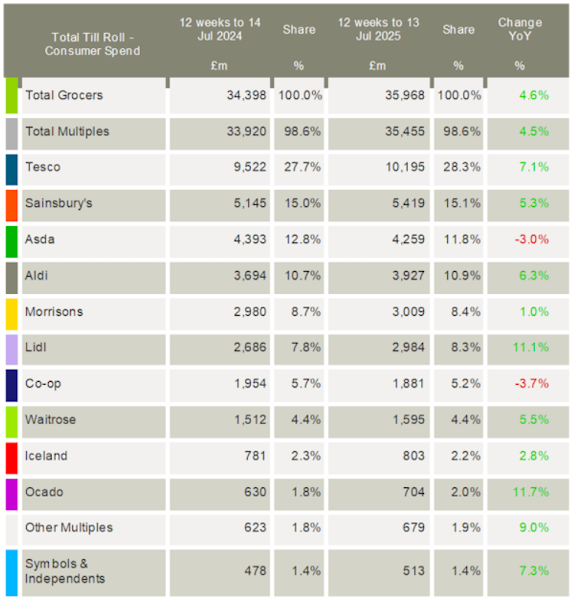Asda has marked Yorkshire Day (1st August) by unveiling a major store investment programme in its home county as part of its drive to improve the in-store experience for its customers.
The struggling supermarket is investing £7.2m to upgrade stores in Kingswood, Harrogate, York, Pudsey, and Keighley by the end of 2025.
Each store included in the programme will benefit from full shop floor refurbishments, including a “simpler and more intuitive” layout, as well as new lighting and signage – all designed to modernise the shopping space.
An additional £4.6m will be invested in two stores in the surrounding area – Grimsby and Stockton – with the retailer aiming to extend the programme to more UK locations next year.
Work will begin in most stores in September and is expected to take around seven weeks per store.
“We’re proud to continue investing in the communities we serve – especially in Yorkshire, where our story began 60 years ago,” said Liz Evans, Chief Commercial Officer – Retail and Non-Food.
“Following the successful refurbishment of our Pilsworth store earlier this year, we’re pleased to share our plans to modernise these Yorkshire stores and further enhance the shopping experience.”
While sales at Asda are still in decline, recent industry data suggests that there are signs of recovery after significant investment in cutting prices and improving its offering.
NamNews Implications:
- Logical for Asda to invest in its stronghold.
- And if they can make it work there, they can make it work anywhere…’
- Hopefully....
- But the real issue is Asda’s fight against the clock…
- …as stakeholders await the EBITDA 'bottom line' impact.





